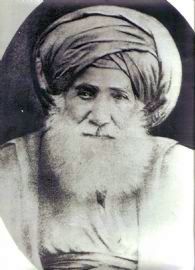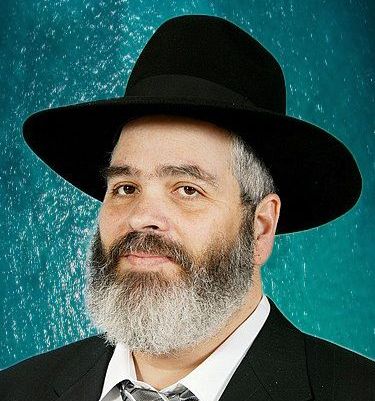  |
|
| |||||
This Google Custom Search looks only in this website. Stories about Elul
HaRav Meir Halevi Soloveitchik zt"l: I once accompanied my father, HaRav Yosef Zev, on a short walk. In the middle, Abba sat down and said: "When I remind myself that the Yom Hadin will be upon us in a few weeks, I begin trembling. I don't deserve a thing and my soul quakes from the dread of the imminent judgment."
One day during Elul, the Brisker Rov was taking his daily walk in Bayit Vegan together with the Admor of Strikov when he was accosted by a Yerushalmi Jew who asked after his health.
The Brisker answered, "We have to do teshuva,"
"Tshuva?" said the Jew. "Does the Brisker Rov have to do teshuva?"
The Rov was taken aback at these words...
This article was originally published in 1994. It is here published online for the first time.
Part II
Annulling a Libel
Miraculous stories about R' Abdallah Somech abounded not only after his death, but also during his lifetime.
In 5633, a strange episode took place, whose consequences were liable to have been grave.
A Jew named Mussa (Moshe) who had converted to Islam and lived outside of Baghdad, slandered a certain Jew and summoned him to court. The Jew swore that he had committed no crime and was vindicated. The angry apostate complained to the Wali and said:
"All the vows and oaths of the Jews are false. They always swear falsely in order to deceive their fellows. Every Yom Kippur they recite the Kol Nidrei prayer, in which they cancel the vows and oaths they are likely to utter during the forthcoming year."
The Wali was deeply influenced by this claim, and ordered R' Abdallah Somech, to explain the meaning of this "deceit." He dispatched some constables to bring him to his office.
To tell the truth, I am not that well informed in the ways of spying.
Some maintain that if the police are prevented from using wire tapping, crime will increase. Criminals will not be caught and more people will suffer because criminals will be hard to pin down.
Others suggest creating an investigating committee which will have to allow the police to use wire tapping techniques. such as Pegasus. But each act of wire tapping will have to be judicially certified in advance. In the past, the police rejoiced over the sophisticated program and invaded the privacy of totally innocent citizens without even receiving such a prior authorization.
Either way, the government has decided to establish an inquiring committee to investigate all the different arguments voiced against the police, contrary to the position of the government's judicial advisor Bahara-Miara. Such conduct of the advisor is part of the government's daily agenda. There is no single act made by the government which will not encounter an almost automatic disagreement of said 'distinguished' person.
* * *
Outstanding Articles From Our Archives
Opinion & Comment
by HaRav Uri Hain
With Rosh Hashonoh fast approaching, everyone searches for ways to better fulfill the obligations of this awesome day. The concept of Malchuyos (Majesty) is certainly a paramount topic of Rosh Hashonoh as emphasized by Chazal. Although much has been written on this area, certain developments in recent years have caused many to realize to a much greater extent the awesome scope of Hashem's Malchus. These lines are an attempt to partially unveil a glimpse of the mind-boggling proportions of the Malchus Shomayim.
Chazal, in Midrash Rabba, parshas VaYeitze, relate the question asked by a wealthy matron: What is Hashem occupied with since Creation? The answer was "matchmaking." Claiming that she was capable of doing this with ease, she matched a thousand of her manservants with a thousand woman-servants. She thought she had proved her point until many of the couples came to her the next day with black eyes, broken arms and legs, and complaining that they could not stay with their assigned mate. She then admitted the superiority of Hashem's ability.
Two questions come to mind. First, how can it be that He who created the entire world in six days and who can judge all of humanity in one day, should need so much time for match- making? Second, what about all the other areas of the world - - who takes care of them?
Opinion & Comment
by HaRav Moshe Samsonovitz
In the yeshiva world, the month of Elul is a period of special [spiritual] grace. This was especially true in a yeshiva whose leader was one of the greatest mussar personalities.
In Be'er Yaakov the atmosphere in Elul was different from the whole year - serious and genuine. There were two sedorim of mussar, one before minchah and another before ma'ariv. The Mashgiach delivered shmuessen three times a week, usually on the same theme for the entire month of Elul. He would develop the topic, going into it deeply and expanding it.
During the days of Selichos the atmosphere in the yeshiva grew even more serious. His fundamental lesson for the Yomim Noraim was that the Day of Judgment focuses on every individual's relationship with the broader community. What is he contributing to the community? How does he relate to the wider group? Is he a person "whom the group needs" - "life for Your sake, Hashem"?
I remember well his explanation of Chazal's teaching, "All the world's inhabitants pass before Him like bnei morone and they are all surveyed in a single glance (Rosh Hashonoh 18). He would explain in Reb Yeruchom's name that while the judgment focuses on each individual separately, it examines his relations to the entire klal. In a single glance, his connection to the group as a whole is surveyed.
In a shmuess on Rosh Hashanah he once explained that bnei morone alludes to a high place where there is a narrow passage with a drop on both sides, where it is impossible for two people to walk side-by-side (Rashi). In the same way a person is brought in for his judgment alone - without his roommate, without his close friend - without having anyone else to blame. Alone and on his own he approaches the Heavenly court. That instills awe of judgment!
|
|||||




.jpg)


